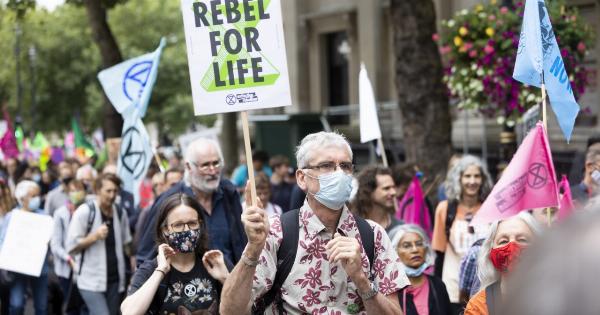For centuries, alcohol has been a popular drink consumed across the world. From social drinking to binge drinking, alcohol is enjoyed in various ways by different age groups.
It’s no secret that excessive alcohol consumption can have negative effects on many parts of the body, especially the brain. In this article, we’ll discuss tips and tricks that can help to reduce the damage of alcohol on the brain.
What Happens to the Brain When We Drink Alcohol?
Alcohol is a depressant that affects the central nervous system. It slows down brain function which results in changes in mood, behavior, and cognitive abilities.
The brain’s communication pathways are also affected – thus the reason for slurred speech and impaired coordination. Over time, consistent and excessive alcohol use can cause damage to the brain such as:.
- Shrunken brain tissue
- Impaired frontal lobe function
- Reduced hippocampus function
- Impaired cerebellar function
What are the Tips and Tricks to Reduce Alcohol Damage on the Brain?
1. Drink in Moderation
The best way to reduce alcohol damage on the brain is to drink in moderation. The National Institute on Alcohol Abuse and Alcoholism defines moderate drinking as up to one drink per day for women and up to two drinks per day for men.
2. Stay Hydrated
Alcohol is dehydrating and can cause damage to the brain cells. Staying hydrated by drinking water before, during, and after consuming alcohol can help to reduce the damage caused by dehydration.
3. Eat Nutritious Foods
Drinking on an empty stomach can quickly lead to intoxication. Consuming nutritious foods can help to delay the absorption of alcohol and reduce the damage caused by it.
Foods that are rich in antioxidants and vitamins can help to protect the brain from alcohol damage.
4. Take Breaks Between Drinks
Drinking at a moderate pace and taking breaks between drinks can help to reduce alcohol damage on the brain. By allowing the liver to metabolize alcohol, the brain has time to recover from the effects of alcohol before consuming more.
5. Avoid Mixing Alcohol with Other Drugs
Combining alcohol with other drugs (prescription or non-prescription) can increase the risk of alcohol-induced brain damage. To reduce the potential negative effects on the brain, avoid mixing alcohol with other drugs.
6. Get Enough Sleep
Alcohol can negatively affect the quality of sleep, which can adversely affect brain function. Getting enough sleep is important to help the brain recover from the effects of alcohol consumption, as well to prevent any alcohol-induced negative effects.
7. Engage in Mental and Physical Exercise
Engaging in physical and mental activity may help to bolster the brain’s defenses against the damage caused by alcohol. Exercise has been shown to promote healthy brain function and can help to reduce the negative effects of alcohol consumption.
8. Seek Professional Help
If you or someone you know is struggling with alcohol abuse or addiction, seeking professional help is crucial in reducing the damage caused by alcohol on the brain.
Alcohol addiction treatment centers and therapists can provide support and tools to help reduce the negative effects of alcohol on the brain.
Conclusion
Drinking in moderation and taking care of your brain through hydration, nutritious foods, breaks between drinks, avoiding mixing alcohol with other drugs, getting enough sleep, engaging in physical and mental exercise, and seeking professional help if needed is the key to reducing the damage that alcohol causes to the brain. It is essential to prioritize brain health as we enjoy the occasional social drink or cocktail to reduce the damage inflicted on our brain by consuming excessive alcohol.































